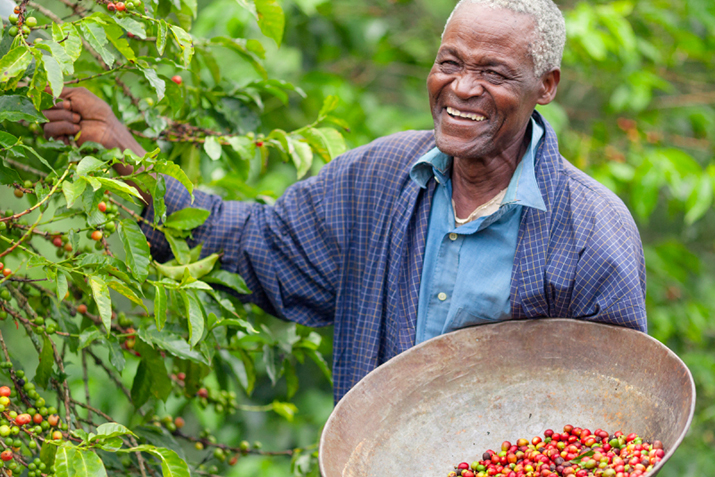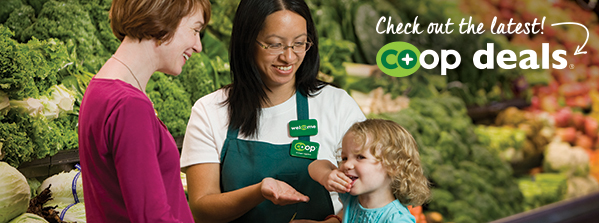Article
The Flexible, Flavorful and Fabulous Plant-Rich Diet

Just three words hold tremendous power to make meaningful change. Are you ready? Plant. Rich. Diet. Adopting a plant-rich diet is one of the most effective things you can do to improve your health, entertain your senses and help slow climate change. Best of all, it’s an inclusive approach to eating. Everyone can add more plants to their plate—you don’t need to identify as vegetarian, vegan or otherwise.
According to researchers at Project Drawdown, if half the world’s population committed to sourcing a large majority of their daily calories from plants—it would be enough to cut the progress of global warming in half. This change in eating habits would be so effective and wide-ranging, adopting a plant-rich diet ranks fourth on Drawdown’s list of 100 potential solutions to climate change.
Fortunately, it’s never been easier or more enjoyable to increase the number of plants you eat—delicious and nutritious plant-based proteins of all kinds are gaining popularity and are more widely available than ever before. The basics are still in play—beans, peas, nuts and seeds, lentils, tofu and tempeh remain beloved protein staples of diets the world over. But these days, burgers, sausages, nuggets, bacon—nearly any meat has a plant-based version, and many of them get high marks from meat eaters and vegans alike.
When it comes to dairy products, rich and satisfying plant-based options are everywhere. Coconut and cashew-based “milks” are super creamy and make excellent ice cream and yogurt, while almond, rice and soy “milks” are great options to add to your morning cereal, oatmeal or smoothies. Dairy-free cheese has come a long way—especially if you are a fan of soft, smooth cheeses like brie, mozzarella, American singles and cream cheese. Ask the staff at your local co-op for a recommendation to swap in for your favorite cheesy recipe.
A plant-rich diet is still tremendously beneficial for the environment even if you do eat meat, dairy or eggs regularly. For inspiration, look to traditional cuisines around the world that lean heavily on plants and use small amounts of flavorful meats, seafood and cheeses to flavor the meal—Mediterranean, Japanese, Indian, Chinese, Vietnamese, Korean and Thai, Ethiopian, Egyptian, Morrocan, Middle Eastern, Mexican—literally an entire world of plant-rich flavor is waiting for you to explore!
So, where’s the beef?
Why is a plant-rich diet so good for the environment? Reducing global demand for meat and dairy would save a huge amount of energy, water, land and other resources. In fact, if the world’s cattle population were its own country, it’d be the third-largest emitter of greenhouse gases. Over half of the world’s agricultural land is currently used to grow animal feed like corn and soy, or raise cattle and other animals for food. The majority of that farming is done using industrial methods that contribute to climate change.
All this land dedicated to raising animals or food for animals means that 91% of the world’s deforestation is driven by livestock and feed farming. Livestock farming is also the leading cause of animal and plant extinction on earth, for this same reason.
Learn about how important rainforests are for the climate.
On the other end, so to speak, during digestion animals produce a lot of gas and manure which both contain methane, a greenhouse gas 28 times more potent than carbon dioxide, contributing further to global warming.
Pasture-raised meat and dairy have been shown to be much more environmentally sustainable than conventional or feedlot methods. In fact, some methods like silvopasture and managed grazing may be able to offset the associated environmental impacts. You can find grass-fed, locally grazed meat and dairy products at your co-op.
Compare the environmental impact of your favorite proteins.
Let’s do this thing!
Food co-ops have been a great source of plant-based proteins, dairy and egg substitutes since the 1970s (shout out to lentil loaf!) and are proud to stock a great variety of the latest plant-based proteins for you to try, as well as help you discover old favorites.













